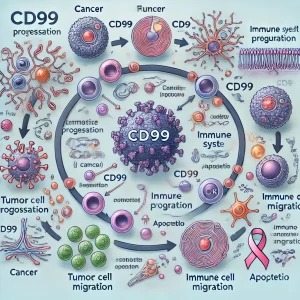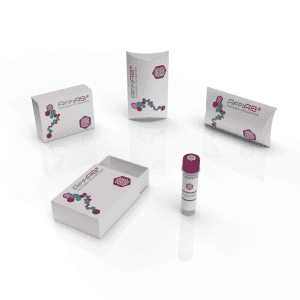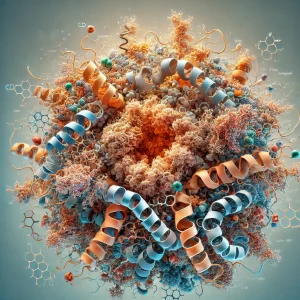Introduction
CD99 is a transmembrane glycoprotein involved in cellular adhesion, apoptosis regulation, immune response modulation, and tumor progression. Anti-CD99 antibodies have gained prominence in biomedical research and clinical diagnostics, particularly in studying Ewing’s sarcoma, leukemia, and T-cell activation.
This article explores the significance of CD99, the applications of anti-CD99 antibodies, and their relevance in disease research, incorporating extensive hyperlinks to educational (.edu) and government (.gov) sources to ensure accuracy and reliability.
What is CD99?
CD99, also known as MIC2, is encoded by the MIC2 gene and is expressed in a variety of tissues, including hematopoietic cells, endothelial cells, and certain cancers (NCBI Gene Database). CD99 plays a critical role in lymphocyte migration, immune cell activation, and cellular adhesion (National Library of Medicine).
Applications of CD99 Antibody
Anti-CD99 antibodies are used extensively in immunohistochemistry (IHC), flow cytometry, Western blotting (WB), and diagnostic pathology to detect and analyze CD99 expression in normal and diseased tissues.
- Immunohistochemistry (IHC): Detecting CD99 expression in tumors, particularly Ewing’s sarcoma and lymphoblastic leukemia (NIH Cancer Research).
- Flow Cytometry (FC): Identifying immune cell populations based on CD99 surface expression (NIH Immunology Database).
- Western Blotting (WB): Confirming the presence of CD99 in cell lysates (Protein Atlas).
- Diagnostic Pathology: CD99 is a key biomarker in differentiating Ewing’s sarcoma from other small round cell tumors (PubMed Central).
CD99 in Cancer Research
CD99 and Ewing’s Sarcoma
CD99 is highly expressed in Ewing’s sarcoma, making it a valuable diagnostic marker for this rare bone and soft tissue cancer. Studies show that CD99 plays a role in tumor progression and can serve as a therapeutic target (National Cancer Institute) (PubMed).
CD99 in Leukemia and Lymphomas
CD99 is found on immature T cells and B cells, making it an essential marker in the diagnosis of T-cell acute lymphoblastic leukemia (T-ALL) and lymphoblastic lymphoma (CDC Leukemia Research) (NIH Blood Disorders).
CD99 and Other Tumors
- CD99 is expressed in synovial sarcoma, mesenchymal tumors, and neuroendocrine carcinomas, although its exact role in tumorigenesis is still under investigation (PubMed Central).
- CD99 expression has been associated with metastatic potential and chemoresistance, indicating its importance in personalized cancer therapies (NIH Clinical Trials).
CD99 in Immune System Regulation
CD99 is involved in the extravasation of lymphocytes and leukocyte trafficking. It helps regulate T-cell activation and migration, playing a role in immune responses against infections and inflammation (National Institute of Allergy and Infectious Diseases).
Therapeutic Potential of Anti-CD99 Antibodies
Given its involvement in multiple biological pathways, anti-CD99 antibodies are being explored for cancer immunotherapy and targeted treatments. Research is focused on:
- CD99 inhibitors to block tumor progression.
- Monoclonal antibody therapy targeting CD99-positive cancers.
- CD99 as a checkpoint molecule in immune-based treatments.
For ongoing research and clinical trials, visit ClinicalTrials.gov and NIH Research Portfolio.
Conclusion
CD99 is a critical biomarker in cancer diagnostics and immunology, and anti-CD99 antibodies have broad applications in oncology, immune regulation, and diagnostic pathology. Continued research into CD99-targeted therapies could lead to novel treatment strategies for Ewing’s sarcoma, leukemia, and other malignancies.
For further reading and up-to-date studies, visit authoritative sources such as the National Cancer Institute, PubMed, and the National Institutes of Health.


